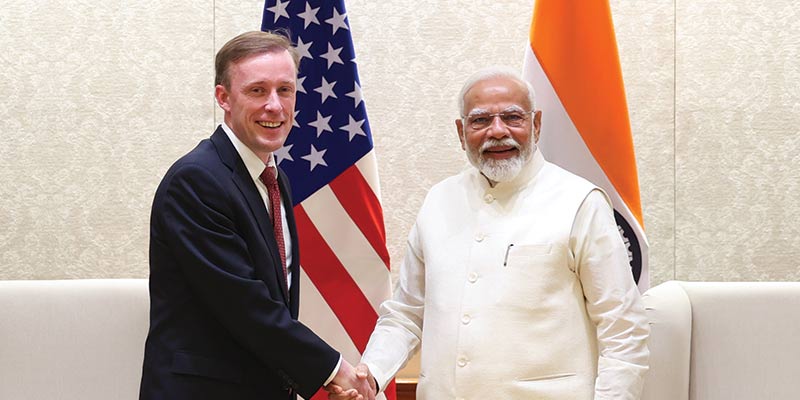- India
- Jun 18
- Kevin Savio Antony
Explainer - India-US Initiative on Critical and Emerging Technologies (iCET)
• US National Security Adviser Jake Sullivan met Prime Minister Narendra Modi on June 17.
• Sullivan briefed PM Modi on the progress in various areas of bilateral cooperation, particularly under the Initiative on Critical and Emerging Technologies (iCET) such as semiconductors, Artificial Intelligence, telecom, defence, critical minerals, space, among others.
• NSA Ajit Doval held extensive talks with his American counterpart focusing on implementation of the ambitious iCET, bilateral defence ties and regional security situation.
• The iCET was launched by PM Modi and President Joe Biden on the sidelines of the Quad summit in Tokyo on May 24, 2022.
What is the iCET?
• The Initiative on Critical and Emerging Technologies (iCET) represents a significant agreement between India and the US aimed at collaborating on crucial technologies like wireless communication, AI, semiconductors, and quantum computing.
• This initiative marks a substantial stride forward in strengthening relations between the two nations.
• The main objectives include establishing technology supply chains grounded in mutual trust, bolstering common democratic principles, and promoting industrial partnerships in vital technologies through joint ventures and collaborative research efforts.
• The key areas of focus under the Initiative include partnerships in AI research agencies, cooperation in defence industries, including startups and technology, fostering innovation ecosystems, developing semiconductor industries, collaborating on human spaceflight endeavors, advancing 5G and 6G technologies, and promoting the adoption of OpenRAN networks in India.
Progress on iCET
• Strategic Vision: Both countries have set a strategic vision focusing on breakthroughs in critical and emerging technologies. This includes co-production, co-development, and joint R&D efforts to maintain innovation leadership.
• Defence and Security Cooperation: There is enhanced cooperation in the defense industrial sector, including discussions on acquiring MQ-9B Unmanned Aerial Vehicles and local manufacturing of defense equipment such as General Electric engines and Stryker infantry vehicles.
• Semiconductors: A strategic semiconductor partnership between General Atomics and 3rdiTech has been launched to co-develop semiconductor technologies for national security applications, including precision-guided ammunition.
• Digital and Telecommunications: Advancements in 5G and 6G technologies, adoption of OpenRAN networks, and cooperation in digital connectivity infrastructure are progressing.
• Mineral Security: Efforts are underway to diversify critical mineral supply chains, reducing dependency on China. Initiatives include investing in lithium resources in South America and rare earths deposits in Africa.
• Expansion of Focus Areas: The initiative has expanded to include biotechnology, digital infrastructure, advanced materials, and clean energy, broadening its scope beyond initial sectors like space, AI, and quantum computing.
• High-Level Engagements: Regular dialogues and high-level engagements, such as meetings between National Security Advisers and other key officials, underscore the commitment to deepening cooperation.
(The author is a trainer for Civil Services aspirants.)

